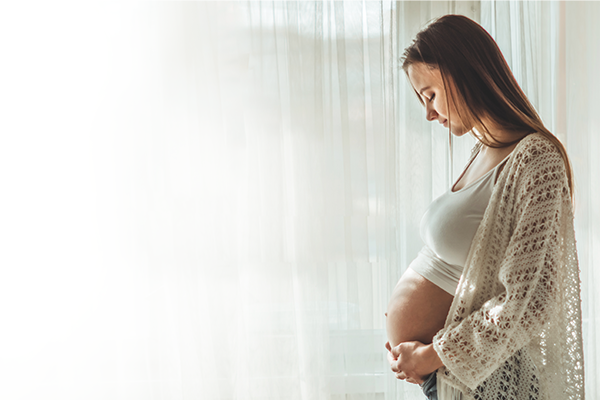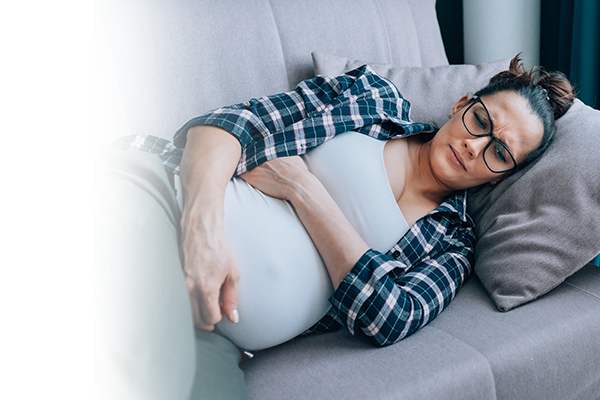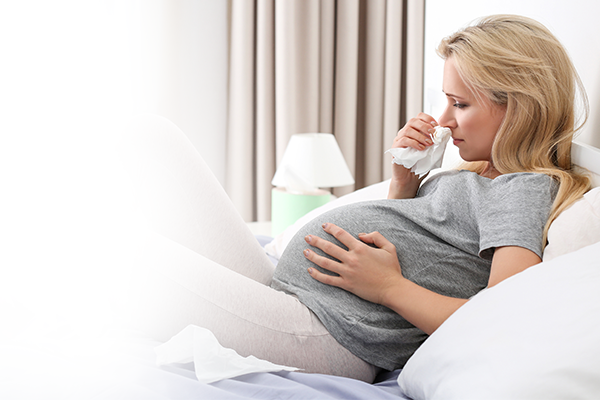Insomnia during pregnancy is reported by more than half of women. Difficulties in sleeping are related to the changes that occur in the pregnant woman's body. These ailments significantly contribute to the deterioration of well-being. Home remedies are recommended for insomnia in pregnancy.
Rest, stress reduction and healthy sleep are important for a pregnant woman. Rest allows the body to regenerate, rebuild energy resources, regulate metabolism, and positively affect the well-being of the mother-to-be and the development of the fetus. Unfortunately, hormonal changes during pregnancy cause most women to report sleepless nights during pregnancy. Their effects are felt primarily during the day, so every pregnant woman should know how to deal with insomnia.
Pregnancy and insomnia
According to data collected by the U.S. National Sleep Foundation, insomnia during pregnancy and deterioration in sleep quality are reported by 75% of women. The problem is most often observed in the third trimester, but the percentage of cases is only slightly higher than at other stages of pregnancy.
Insomnia in pregnancy manifests itself in various ways. Most women report waking up from sleep and having difficulty falling asleep again, as well as waking up early in the morning. In some pregnant women, the time between going to bed and falling asleep also increases significantly.
The effects of insomnia in pregnancy are felt throughout the day. Lack of sleep primarily affects the nervous system. The woman notices in herself difficulties in concentration, a decrease in energy, lack of motivation, excessive sleepiness, weakness. Prolonged insomnia at night can lead to weakened immunity, mood disorders and complications during labor.
Causes of insomnia in early pregnancy
At the beginning of pregnancy, insomnia is associated with hormonal changes that occur intensely after conception. The increase in pregnancy hormones (mainly estrogen) affects the phases of sleep: REM is lengthened and NREM, which is responsible for resting the body, is shortened. While a pregnant woman may wake up during the night, she has no problems falling asleep. Insomnia in the first trimester of pregnancy causes a feeling of constant fatigue during the day.
Insomnia in the second trimester of pregnancy
Insomnia in the second trimester of pregnancy manifests itself mainly in problems with falling asleep. Its causes are changes in a woman’s body – a gradual increase in the circumference of the abdomen, a change in the position of internal organs in the abdominal cavity, as well as pregnancy complaints: back pain, breast tenderness, difficulty breathing and painful calf cramps. It is often the case that women who suffered from insomnia at the beginning of pregnancy cease to experience it in the second trimester.
Insomnia in the third trimester of pregnancy
Most pregnant women report insomnia in the third trimester of pregnancy. It is mainly related to increasing pregnancy discomforts and the difficulty in finding a suitable sleeping position due to a large belly and back pain. Other causes of insomnia in pregnancy include:
- The need to urinate frequently due to pressure of the uterus on the bladder,
- breathing problems,
- Intense fetal movements,
- Predictive cramps.
Insomnia at the end of pregnancy can be caused by stress from the upcoming delivery.
Ways to get insomnia during pregnancy
Insomnia during pregnancy can be a very troublesome problem. If it happens often and impedes daily activities, a woman should see a doctor. It is forbidden to take any drugs on your own. Pregnancy drugs for insomnia can adversely affect the development of the fetus, so home remedies are advisable first of all:
- Limiting naps during the day,
- taking care of the climate in the bedroom (airing the room, silence, no light, comfortable mattress),
- Use of relaxation techniques,
- Falling asleep and waking up at consistent times,
- aromatherapy.
It is also recommended to drink infusions of herbs (lemon balm, linden flower) half an hour before bedtime.
See also: How to deal with postpartum depression will be in England?
Rate this article:











